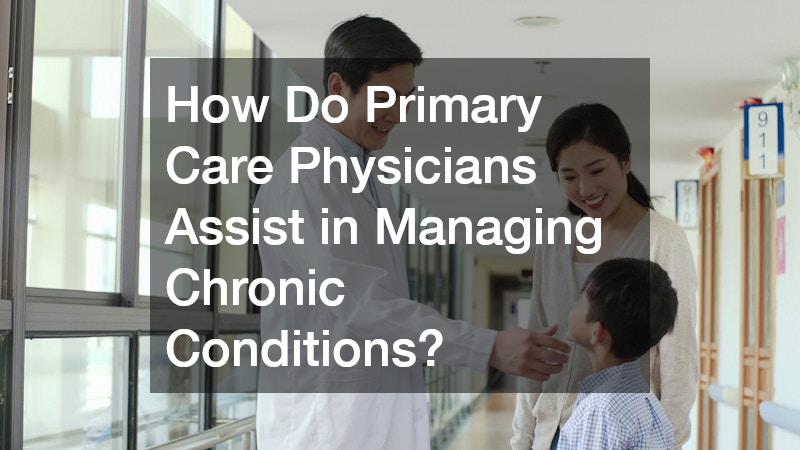

In this article, we delve into the importance of having a primary care physician (PCP) and how it can significantly impact your overall health and wellness. The role of a PCP is often misunderstood, yet it is crucial for preventive care, chronic disease management, and navigating the complexities of the healthcare system. We will explore common questions and concerns about primary care physicians.
What Role Does a Primary Care Physician Play in Healthcare?
Comprehensive and Continuity of Care
Primary care physicians provide a wide range of services, including preventive screenings and the diagnosis and treatment of various health conditions. Maintaining a long-term relationship with patients allows PCPs to deliver continuous and personalized care throughout a person’s life.
This continuity of care fosters a deeper understanding of each patient’s health history and unique needs, enabling more accurate and timely medical interventions. By closely monitoring health over time, PCPs can identify trends or changes that may indicate emerging health issues.
Furthermore, having a primary care physician ensures that there is a central figure coordinating all aspects of a patient’s healthcare. This holistic approach contributes to more efficient and effective management of a person’s overall health.
Referral and Coordination with Specialists
A PCP serves as a critical coordinator within the healthcare system, referring patients to specialists when advanced care is needed. They streamline the referral process, ensuring patients receive timely and appropriate care from qualified experts.
Efficient communication and coordination between a PCP and specialists foster seamless care transitions during treatment for specific health concerns. This collaboration is essential for managing complex health conditions that require input from multiple healthcare providers.
By acting as a bridge between patients and specialists, primary care physicians enhance the effectiveness of the overall healthcare journey. This integrated approach is crucial in preventing fragmented care and ensuring all medical professionals involved are aligned on patient goals.
How Do Primary Care Physicians Help in Preventive Care?
Regular Health Screenings and Immunizations
PCPs play a pivotal role in preventive care by conducting regular health screenings that enable early detection of potential health issues. Immunization schedules managed by PCPs help protect individuals against preventable diseases.
Screenings performed by primary care physicians cover a variety of conditions and are tailored to age, gender, and specific risk factors. Such preventive measures are a cornerstone of proactive healthcare, aiming to mitigate risks before they develop into more significant problems.
The effectiveness of preventive care is underscored by the fact that early intervention can improve long-term health outcomes and reduce the need for more costly treatments. PCPs serve as the first line of defense in maintaining and safeguarding a patient’s health.
Health Education and Lifestyle Recommendations
Primary care physicians are invaluable sources of health education, providing patients with advice on maintaining a healthy diet, exercise routines, and making positive lifestyle choices. They empower individuals to take control of their health journeys through informed decision-making.
By understanding the nuances of their patients’ lives, PCPs offer personalized lifestyle recommendations that align with each individual’s needs and circumstances. This guidance supports the prevention of chronic diseases such as diabetes and hypertension.
Ongoing education and encouragement from a PCP can significantly enhance patient engagement in their health. Through these efforts, primary care physicians lay the foundation for sustainable health improvements and overall well-being.
What Should You Look for When Choosing a Primary Care Physician?
Credentials and Experience
When choosing a primary care physician, evaluating their credentials and experience is essential to ensure high-quality care. Board certifications, years of practice, and expertise in specific areas are measures of a physician’s competence and commitment to standards of care.
Experience in managing diverse patient populations can provide insights into the proficiency and adaptability of a PCP in addressing varied health needs. It’s crucial to choose a physician whose skills align with personal health goals and expected outcomes.
Assessing a PCP’s reputation through patient reviews or referrals from trusted sources can further guide the selection process. Ultimately, selecting a qualified and experienced primary care provider sets the stage for a successful healthcare partnership.
Communication Style and Accessibility
Effective communication and accessibility are pivotal factors when choosing a primary care physician, as they influence the quality and satisfaction of the healthcare experience. A PCP’s communication style should be approachable and clear, ensuring open dialogue and understanding.
Accessibility to healthcare services and flexible appointment options are additional considerations that underscore a positive patient-doctor relationship. Reliability and ease of scheduling are crucial for maintaining consistent health monitoring and addressing concerns swiftly.
An ideal primary care physician fosters a supportive and respectful environment where patients feel comfortable sharing health information and preferences. These factors contribute significantly to a collaborative and responsive healthcare experience.
How Do Primary Care Physicians Assist in Managing Chronic Conditions?
Personalized Treatment Plans
PCPs develop and implement personalized treatment plans to manage chronic conditions, ensuring that care is aligned with individual patient profiles and specific health goals. Personalized interventions improve adherence to treatment regimens and overall health outcomes.
By tailoring care plans to each patient’s circumstances, primary care physicians can better address the complexities of chronic disease management. This approach allows for adjustments in response to changes in the patient’s condition over time.
Medication Management and Monitoring
Medication management and monitoring by PCPs are vital components of chronic disease treatment, as they ensure the safety and effectiveness of prescribed therapies. Primary care physicians assess and adjust medications to optimize therapeutic outcomes while minimizing side effects.
Regular consultations with a PCP enable patients to discuss any issues or concerns related to their medication regimen. This dialogue is crucial for identifying potential interactions or the need for adjustments based on patient feedback and health metrics.
.



